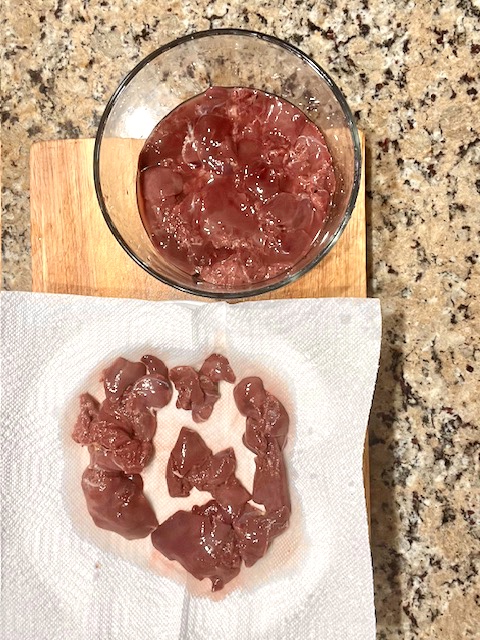Cooking Oils for A Healthier Diet: The Good, the Bad, and What You Need to Know
When I began my journey toward healing and managing autoimmune issues, one of the most surprising — and honestly, eye-opening — changes I had to make was rethinking the oils I used every single day in my kitchen. At first, it felt overwhelming. I had spent years believing that canola oil was healthy and that all “vegetable” oils were pretty much the same. Spoiler: they’re not.
The truth is, cooking oils are more than just a way to keep food from sticking to the pan — they play a powerful role in our health. The fats we consume affect everything from inflammation and hormone production to brain function and gut health. And for anyone living with autoimmune conditions, the stakes are even higher. Some oils can help soothe inflammation and support healing, while others silently fuel the fire.
So, let’s dive in. In this post, COOKING OILS FOR A HEALTHIER DIET, I’ll walk you through which oils are your friends, which ones you’ll want to leave behind, and why making the switch can be one of the most impactful steps in creating a nourishing, healing lifestyle — whether you’re following AIP, managing a chronic illness, or simply aiming to feel your best.
The Best Cooking Oils for a Healthier Diet
These oils are rich in stable fats, anti-inflammatory properties, and nutrients that support cellular health, hormone balance, and digestion:
🥑 Avocado Oil
Why it’s good: High smoke point (great for cooking), rich in monounsaturated fats, vitamin E, and antioxidants.
Benefits: Supports heart health, reduces inflammation, and helps absorb fat-soluble vitamins (like A, D, E, K).
Personal tip: I use avocado oil for roasting veggies, sautéing meats, and even in homemade dressings.
🥥 Coconut Oil
Why it’s good: Contains medium-chain triglycerides (MCTs), which are quickly metabolized for energy.
Benefits: May support brain health, gut health (due to its antimicrobial effects), and stable energy levels.
Best use: Low to medium-heat cooking or baking. (Although I prefer avocado oil for AIP recipes, coconut oil can still be part of a healing diet.)
🥄 Extra Virgin Olive Oil (Cold-Pressed)
Why it’s good: Packed with polyphenols, antioxidants, and healthy fats.
Benefits: Anti-inflammatory, supports cardiovascular health, and helps reduce oxidative stress.
Use: Best drizzled on salads or post-cooking (not ideal for high heat).
🧈 Ghee (if tolerated)

Why it’s good: Clarified butter with the milk solids removed; contains butyrate, a fatty acid good for gut lining health.
Benefits: Supports digestion and inflammation regulation.
Note: Not AIP-compliant, but may be reintroduced later if tolerated.
Oils to Avoid (and Why)
These oils are often marketed as “heart healthy,” but most are highly processed, unstable when heated, and promote inflammation:
🚫 Canola Oil (Rapeseed Oil)
Why it’s problematic: Often genetically modified (GMO) and heavily processed using chemical solvents.
Downside: High in omega-6 fats, which, in excess, contribute to inflammation and may affect hormone balance.
🚫 Soybean Oil
Why it’s bad: One of the most commonly used oils in processed foods and restaurant cooking.
Risks: Highly refined, contributes to leaky gut, increases oxidative stress, and can interfere with thyroid function (especially concerning for those with Hashimoto’s).
🚫 Corn Oil
Why it’s bad: Similar to soybean oil – heavily refined, high in omega-6 fats, and often from genetically modified crops.
Effects: Promotes inflammation, blood sugar instability, and may disrupt gut flora.
🚫 Vegetable Oil (Generic blends)
What’s in it?: Usually a mix of soybean, corn, and/or cottonseed oils.
Why avoid: These blends are highly oxidized, refined with chemicals, and devoid of nutrients.
🚫 Sunflower & Safflower Oils
Why they’re problematic: While they may sound healthy due to their plant origins, both sunflower and safflower oils are often refined and extremely high in omega-6 fatty acids.
Downside: The excess omega-6s promote inflammation when not balanced with omega-3s, and these oils are typically unstable at high heat.
Impact: Linked to oxidative stress, cellular inflammation, and gut irritation—especially for those with autoimmune or inflammatory conditions.
A Note on Balance: Omega-3 vs. Omega-6
Our bodies need both omega-3 and omega-6 fatty acids—but the modern Western diet tends to go overboard on omega-6s due to processed foods and poor-quality oils. This imbalance contributes to chronic inflammation, which is a major trigger for autoimmune flares, joint pain, digestive issues, and more.
Choosing the right oils is one of the simplest, most powerful changes you can make for your health.
💡 Final Tips:
Read labels carefully—even organic and gluten-free products sometimes contain harmful oils.
Store oils properly: Keep them in cool, dark places and use them within a few months to avoid rancidity.
Rotate your fats: Variety supports a more balanced nutrient profile.
If you’re on an AIP or anti-inflammatory diet like I am, start by removing the seed oils and switching to avocado or coconut oil for cooking. Your gut and your immune system will thank you.
✅ Ready to Clean Up Your Oils?
Small changes can have a big impact—especially when it comes to the oils you cook with daily. Whether you’re managing an autoimmune condition, supporting your gut health, or just looking to eat cleaner, choosing the right oils is a powerful step toward healing and wellness.
👉 Want a quick reference guide to keep in your kitchen?
I’ve created a FREE Cooking Oil Guide — a simple, printable chart that shows the best oils to use (and which ones to avoid), including smoke points, health benefits, and AIP-friendly options.
📩 Send me a message at info@aipwellnessjourney.com and I’ll personally send it to you!
(Perfect to stick on your fridge or keep in your pantry for easy reference!)


















